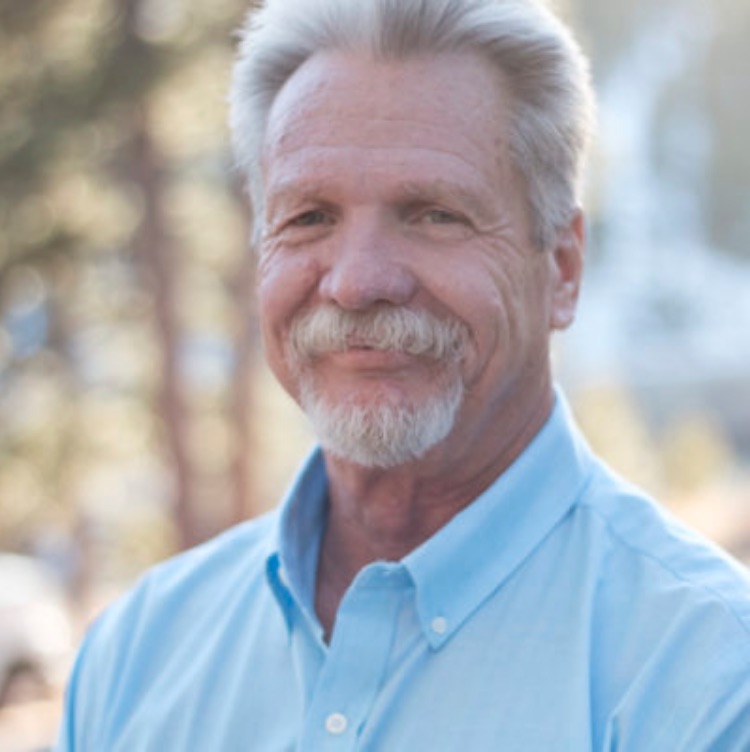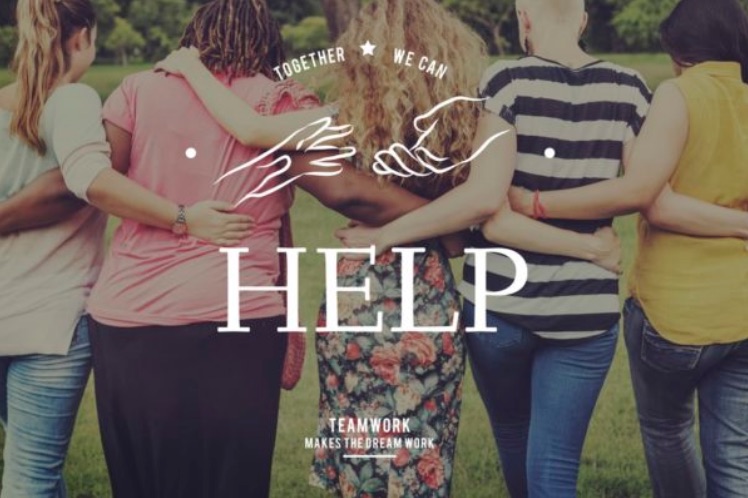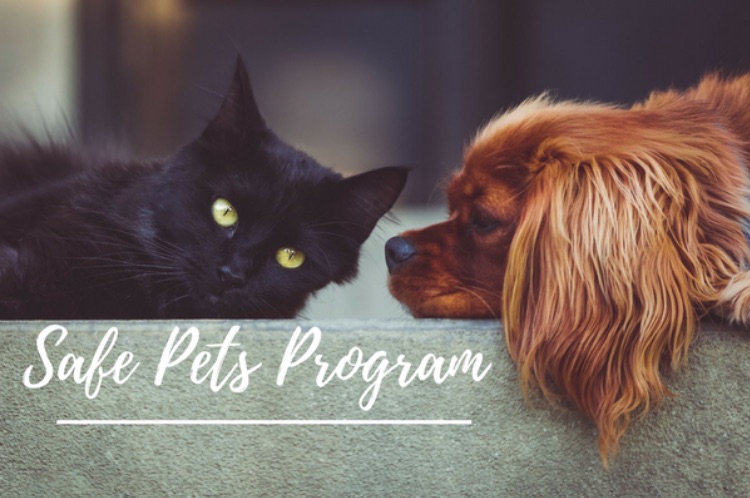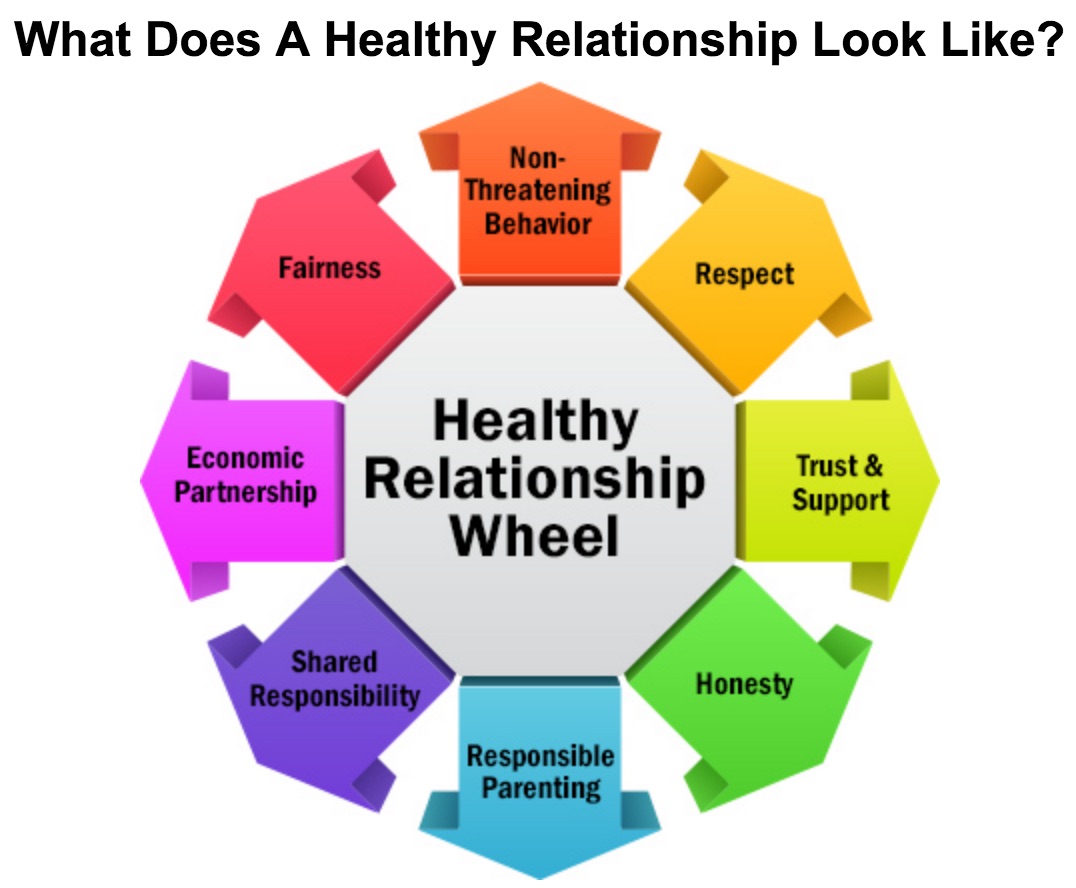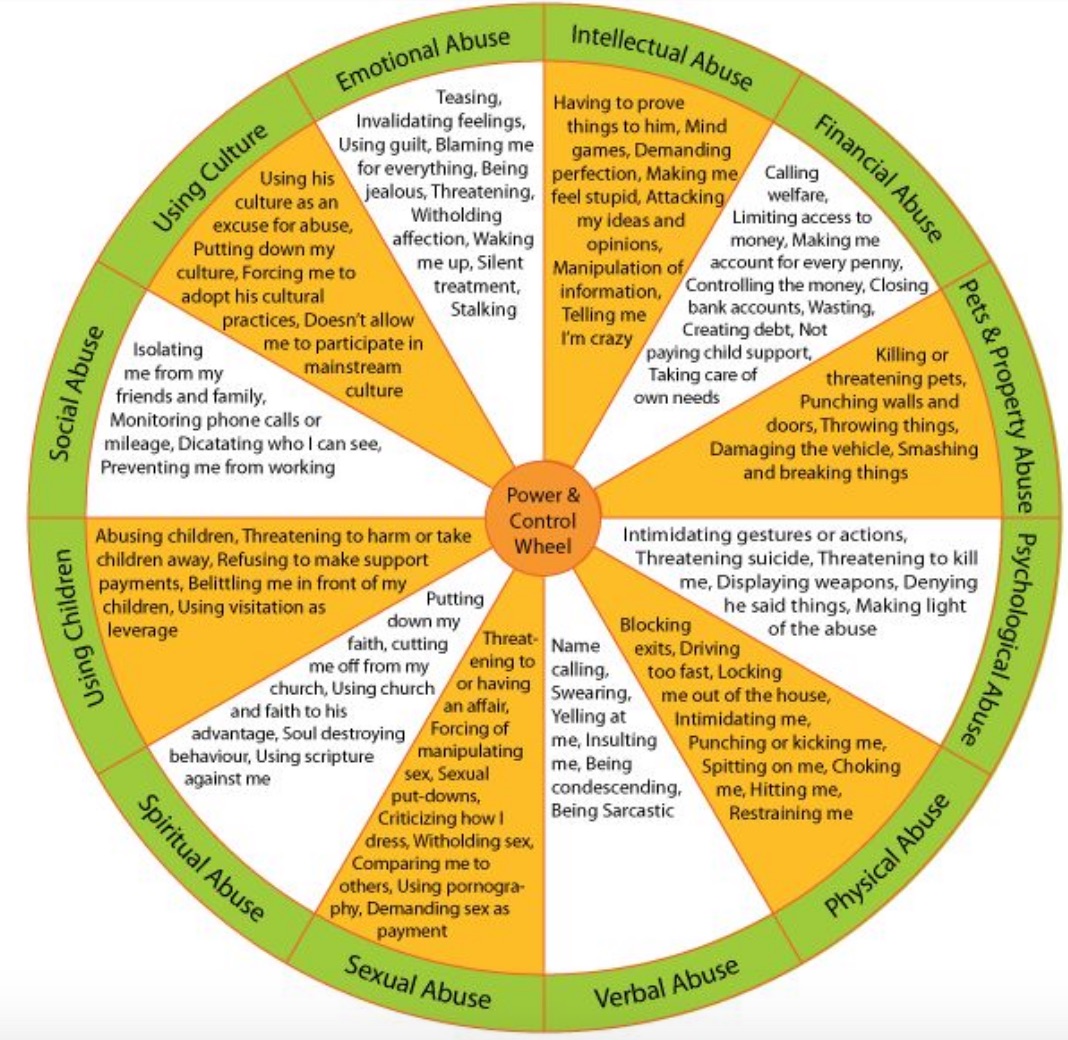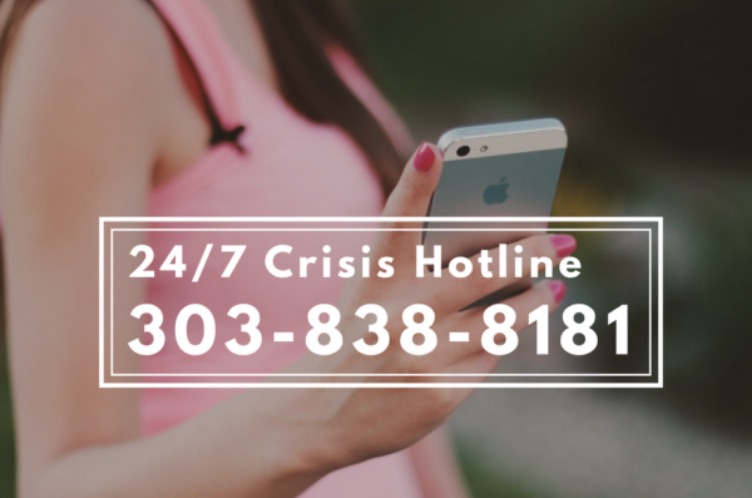Sharon Montgomery
Finding My Peace at Mountain Peace Shelter
"A house, where a woman is not safe, is not a home." -Woman, Liberia
Small towns. A place where everyone knows your name and your business. The good and bad of small town living is embracing a close-knit community that supports one another but can end up being a bit nosey. Which, in the case of domestic violence, can provide a valuable safety net.
For me, service is a way of life. That's why I ended up as a volunteer for Mountain Peace Shelter (MPS). I'd been itching for a way to give back to the community for the last 6 months, and after talking with Donna, a friend who works at Mountain Peace Shelter, she provided a great option. It not only provided a much needed service, but provided nourishment and peace to my busy life, as well. Using the flexibility of their crisis line volunteer schedule, I could do it in the comfort of my own home, or wherever I happened to be. A few weeks later found myself at my first volunteer training course.
Over the span of two days I learned a lot about domestic violence that I hadn't known before, and I left the training determined to do two things:
- Use my platform as a writer to get the word out about the good work Mountain Peace Shelter (MPS) is doing.
- Learn as much as I can about Domestic/Intimate Partner Violence.
I planned my interviews with Lori Cuno, the Executive Director of MPS, Donna Thornton, the Crisis Line Coordinator and Crisis Advocate, and Curt Robinson, the President of MPS Board. Kathy Mastroianni, former Executive Director of MPS, was available as well, to share more about what MPS was all about.
After meeting with the staff at MPS, I knew that sharing their stories would tell you all you needed to know about why I fulfilled my desire to give back to the community. It also tells you why it matters to you.
The passion and warmth in their voices communicated the importance of what was happening at the shelter, as well as the love they are already receiving from the mountain town communities. Each person's commitment told a story before saying a word.
Lori's sharp, kind eyes told me that she really doesn't miss a lot. She has a remarkable history advocating for women and has built an impressive reputation in the Mountain town community.
Donna's openness put me at ease when I first met her. She has a funky sense of style and a ready smile that tells you she cares.
Although Curt wouldn't describe himself as being a key player at the shelter, I quickly learned his kind heart and willingness to help lets the team rely on him heavily.
And Kathy was a true joy to talk to. When we talked about her experience at the MPS, full of pride and honesty, I felt honored to have the opportunity to share this story with you.
In the Beginning...
"We rise by lifting others." -Robert Ingersoll
I began with the history of Mountain Peace Shelter (MPS). As a naturally curious person I wanted to know when and why it started in the first place, so I went straight to the source. Kathy Mastroianni's role at the MPS spanned a decade as the Executive Director. But what you might not know is that she stepped in and took over with a shoestring budget, no staff, and many long hours that would be daunting to most of us. To Kathy, it was the joy of providing such vital services to her community that kept her going.
When I asked Kathy about her experience at MPS, she shared a beginning. Not hers, initially. But it was needed to understand, she said.
"Sally Swancara is the one who got it going," Kathy said. "Karen Rojas was the first director, and she lasted a year. Then Sally came on board and was there for 16 or 17 years, nursing and growing the shelter.
Back in the day, the mission was to create a continuum of care - from violence prevention, to crisis intervention, and onto empowering self-sufficiency for the families in our mountain community. It's really helped people be peaceful."
Then she said something that jarred me right out of interview mode.
"Then after 16 or 17 years, Sally was killed by her son."
Whaaat? I thought. That came out of the blue!
"It was a tragedy," Kathy said, "I left the shelter on February 6th and four days later she was killed by her son. And so within four days it felt like 27 years of the history just kinda disappeared. It was just this really profound time for me."
I asked how she functioned after hearing that Sally was gone.
Kathy said, "Well, it's part of the environment. There's a reason that the shelter is needed, right? Sally had a history that brought her here, and so do I.
When I was six-year-old my mother committed suicide. She was in her second domestic [violence] marriage with my dad, and she didn't see a way out. And that was her way out, you know, committing suicide. I didn't know this for many years. Do you know how driven you have to be to be able to run a [domestic violence] shelter? It was important to give people a safe option so they don't have to commit suicide. And so kids can have their parents in their lives.
That's what I would tell the people that came to the shelter. I'd say, 'Wow, you can't see right now why this is happening, but there's something greater. And I bet you're gonna use this experience to help someone else out.' And that's what it's all about, helping each other."
That's where Kathy began. I knew this topic would be complicated and hard. It is. In fact, we will cover another aspect of Kathy's story in a follow-up article, because it's important to know about the beginnings of this organization, but it's also vital to know what happens when a shoestring budget, staff, and growth all collide. Trama isn't a new part of Kathy's life. It's what brought her and many other people to the shelter. And it's why the mountain town community is there to support such a great cause and organization.
We spoke of the history, and later, Lori picked right up on that topic, as well.
She explained to me that the shelter had very humble beginnings and was founded in 1986 due to a lack of services for survivors. The organization was created to bridge devastating gaps in available care for survivors of domestic violence in Park and Mountain Jefferson Counties. In the beginning, the founder opened up her home and made a comfortable safe place for women in need of safe shelter.
"This grassroots community base included many caring volunteers," she said. "Mountain Peace Shelter has helped thousands of individuals and families rebuild their lives in the aftermath of domestic violence, sexual assault, stalking, and other relationship crimes.
This story reminded me of my own home town. A place where people look after each other in hard times and find a way to help the person in need. But there is so much more to it. Everything from contributing to another person's healing and growth, to becoming strong by helping another person out, is a perk that comes into play. I was impressed with the fortitude the founder exhibited as she fought to build something bigger than herself for the survivors in their community.
The Shelter Today
"Love and compassion are necessities, not luxuries. Without them, humanity cannot survive." -The Dalai Lama
"Where is the Mountain Peace Shelter Organization today, and what future plans may it entail?" I asked.
"Well," said Donna, "Our Mission Statement is, 'To speak out against Domestic Violence/Intimate Partner Violence and to transform society's response to Domestic/Intimate Partner Violence through awareness and education while assisting and empowering survivors, their children, and pets in their safety and healing through support and advocacy.'"
Both Lori and Donna agreed that the Mission Statement is the foundation they build all of their services on.
"We are here to provide a critical service to the community," said Lori. "And within that community are survivors, partners, and youth. The critical services we provide to survivors are not only the advocacy, support, and shelter, but more so the education. Education about what a healthy relationship looks like because, believe it or not, there are a lot of people who don't know what an abusive relationship looks like."
"We're the only domestic violence shelter in a twenty-seven hundred square mile radius." said Donna. "We cover Park County and Mountain Jefferson County. So, we're it up here. We've grown and changed over all those years and we are really progressive in terms of best practices and keeping up with the current times. We also have men and women in the shelter," she added. "We don't discriminate based on gender or sexual orientation."The Man of Mountain Peace Shelter
"The people who could do most to improve the situation of so many women and children are in fact men.
It's in our hands to stop violence towards women." -Patrick Stewart
Curt addressed the fact that he is a man working at a domestic violence shelter. "This is not often the case in other shelters," he explained, "When a woman comes into the shelter, all the staff are really good about explaining that I'm around a lot. But every now and again, I hear on a very regular basis, 'I was done with men. I wanted nothing to do with a man ever again!' I get it. They're entitled to that feeling. But it does not take very long, and pretty soon we're having a conversation."
"So, you become the example that there are safe men out there?" I asked.
"I feel very fortunate to be allowed to participate, and I use that word on a regular basis to describe what I do," Curt said with a smile.
"How long have you been with Mountain Peace Shelter?" I asked.
"I've been involved close to five years." Curt said. "Started off just repairing the shelter itself, and then they wanted me to help with a little fundraising and different things, and then I went away a little while and had other things that I was doing. I am retired now, and I finally just said, Well, line me up and point to me when you need something done. So now I do the crisis hotline and part of the training for the crisis hotline."
After talking to Curt, my trust that having a man in a place like a domestic violence shelter grew. The values that I was finding at the Mountain Peace Shelter lined up solidly with what I was looking for in a place to volunteer and giving back to the community offering me a sense of peace.
Community Outreach & Education
"Abuse thrives on silence. And you teens don't do silence very well. That's why you can change this."
-Love Shouldn't Hurt Teen Conference
After talking more with Curt, I learned that he also helps with the community outreach as well. He shared that he and Lori go to schools and talk about what a healthy relationship looks like and what an unhealthy relationship looks like as well.
I asked him how his message is usually received, and his face lit up. "Another example of outreach - we went to an organization that is for at-risk youth, and they have one mentor for every mentee. Some of these kids have seen things that no kid should ever see or have been around.
We went in and started talking about different things and found that they are very bright and well-informed, frankly. Conversation was not difficult. Got them thinking, is this abuse or not? Is this control? If we can just plant a seed that you should expect A, B, and C, and the respect...if it's not there, then maybe it's not a good fit."Goals
"Women are sacred. Together we can end domestic violence"
-Indigenous Action Media
I was really impressed that MPS included education and an outreach in their program. I understood that they are not just responding to people in a crisis situation, but they are also working on prevention by educating kids and their families about what abuse looks like and empowering them to talk to someone if it happens to them. I loved the fact that there is education here and not just crisis management. Addressing a problem at its root is very important to me.
"And is the goal of educating the public to end domestic violence altogether?" I asked.
Lori nodded, "Yes, my goal is to end domestic violence. I may not be able to stop domestic violence as a whole. Yet, one family, one youth, one person at a time, I can do."
"Exactly," I responded.
I knew that this process is something that grows with time. We might not see the full extent of our efforts during the short time that someone is at the shelter, however there have been many examples and stories of survivors who have started down the pathway of healing and self-empowerment, and that is a big deal.
What We Love About Mountain Peace Shelter
"An estimated one million animals are abused or killed each year in connection with domestic violence. 71% of domestic violence victims report that their abuser also targeted their pet." -socialworkhelper.com
"What are some of the things that you love about Mountain Peace Shelter and your jobs?" I asked.
Donna replied, "We come from a place of non-judgment. We have a survivor-driven, trauma-informed statement that drives us. Everything we do is centered on the survivor themselves. What they want to accomplish."
"I love that every day is different." shared Lori. "Every day I learn something new and we are planting seeds of change with our residents as well as with the community. We have many successes."
Curt added, "We're also one of very few, of only 60 in the country, that accept pets. The last number I saw was 5 in the state of Colorado that can handle pets, and some of those foster them out."
This was one of the most endearing parts of the shelter for me. In my volunteer training I had learned that Mountain Peace Shelter had dedicated spaces on the property to house the animals like cats and dogs so that their owners could be with them daily. And to go the extra mile, a member of the community will house larger animals such as horses and livestock at her farm.
Overcoming Obstacles
"Hardships often prepare ordinary people for an extraordinary destiny." -C.S. Lewis
"What are some of the struggles that MPS deals with on a day-to-day basis?" I asked.
Donna gave a thoughtful look and answered, "We have a number of struggles here because we don't always have enough resources to help everybody as much as we would like to. It's very hard for people who are leaving domestic violence relationships, especially when they don't have transportation, a job, or money. We often have people coming with nothing.
But we can offer them a safe, temporary place to be which is really important. We also help them find financial resources through grants and other resources in the community."
"There are a lot of moving parts," said Lori. "I think time is definitely one. I was just talking to our intern, and the hardest part is when the kids are discharging into a non-ideal situation."
"So, worrying about the residents who haven't been successful at figuring out what the next step is and maybe going back to their situation?" I asked.
"Yes," said Lori, "Or when you see that relationship violence has become 'normal' for someone, and how hard it is to change patterns, but we support them in whatever their decision is and do a lot of safety planning."
"I can see where that would be a difficult situation," I said. "It's never easy to step back and watch someone experience natural consequences. Especially when you care about them."
Reasons to be Proud
"Everything good that's happened to me came out of helping others." -Danny Trejo
"What about the shelter are you the proudest of?" I asked.
"We meet people where they are at," said Lori. "and I feel strongly that those that are coming to us are getting excellent advocacy and support. I think that we are a very flexible and creative organization with the clients that we are serving."
"And you, Donna?" I asked.
"I know the difference we make. I see it every day." She explained. "We have so many people who come to us completely beaten down. "We have people that have moved on from having never lived an independent life on their own, to really flourishing on their own. Or [flourishing] with their children. I think that is what does it. It's so powerful to see the difference in people."
Curt added, "When the phone rings, I think it's a great opportunity to help somebody. I know some people are a little leery about staffing the crisis line if they haven't done it much, but I love it."
What It's all About
"It is sometimes amazing to me that I am the same person that was once that sad young woman that was so lost and hurt so many years ago. I want to go back in time and tell her it's going to be okay and she will make it out of that life."
-Domestic Abuse Survivor
"Can you speak to the transformations that you have witnessed at the shelter?" I asked.
Lori answered, "I think one of the things I like seeing when folks come to us, is they build a relationship quickly with staff and that ability to trust. Trust in themselves and in the folks that are working with them is really inspiring. You can see them getting stronger as their awareness becomes clear. That inner strength and well-being that leads to, Hey maybe I can do this. Believing in themselves because someone else believes in them. It goes a long way."
"We had someone who came from another state, had traveled days to get here," Donna said. "We worked with her to create a plan for her to safely travel across the country to get here. She was with us for a couple of months. And during that time, she was able to get work and get some other resources gathered for her car. And when she was ready for the move we helped connect her to some monetary resources too for traveling funds (usually donated from kindhearted community members), and found her shelter in that new location."
I reflected on the success stories and I wondered if I had been in the shoes of these women, would I have been strong enough to leave an abusive situation where I could potentially lose everything?
Overcoming Stereotypes
"I had to learn how to live without wearing the shame others want me to wear." -Domestic Violence Survivor
One common stereotype is that domestic violence only affects people that are low-income, addicts or minorities, but through my training I learned that Intimate Partner Abuse does not discriminate. The studies are very clear that 1 in 3 women have experienced domestic abuse and 1 in 4 men. And the survivors span every kind of socioeconomic status, ethnicity, religion, gender, sexual orientation.
Other questions people ask are 'Why doesn't she just leave?' And 'Is it abuse if there is no physical violence?' or 'If she would just do what she is supposed to she wouldn't get abused.' Pretty standard victim blaming behaviors.
I shared this with the staff, and asked, "What are your thoughts on this?
"That's a huge myth and it's just a huge misconception," said Donna. "The most dangerous time for a person living in Domestic Violence/Intimate Partner Violence relationship is when they're leaving. That is statistically the greatest time when people get murdered by an intimate partner. So sometimes it's actually safer to stay, especially if you don't have a safety plan and a place to go."
"Yes. I think that there is a misconception that domestic violence is physical only," agreed Lori. "There may be a physical aspect. Yet, it comes in many forms. So, you can live a whole marriage of domestic violence and never be hit, and it can be just as dangerous and detrimental to a person."
Curt shared, "Domestic violence is brushed under the rug. People really don't talk about relationship violence. A change won't happen until it's viewed the same as what has evolved with drunk driving. As an example, drunk driving used to be, Oh yeah, boy, I had a few too many, but I got home alright. Or, Oh, my car knows it's way home, said with a chuckle.
But that has evolved to where driving drunk is not acceptable. For instance, the movement of Mothers Against Drunk Driving (MADD) has done some great things. Because of MADD educating the public, our culture around drinking and driving changed, and we can talk about it openly. Domestic/Intimate Partner Violence has to go through that same process until it is no longer acceptable."Giving Back
"It is easy to sit up and take notice. What is difficult is getting up and taking action." -Honore de Balzac
"After reading this article, what would you want our readers to do? What is the next step?" I asked.
"Well there is information about donating and volunteering on our Website at www.mountainpeace.org." shared Donna. "They can call, come in, they can email us if they want to help. We also do presentations on Teen Dating Violence. We can come and talk to your organization about Intimate Partner Violence or Teen Dating Violence.
Also, anyone can become an ongoing supporter of MPS through our PeaceWorks Partners Program - and support us with a monthly gift to help ensure that we can continue to provide the shelter services and community outreach into the future. Participants can also set up a recurring donation through our donate page on the website."
Lori added, "There are many opportunities to make change in your community. If community members want to volunteer that is wonderful, however there are still other ways. If they are a parent of children or adolescents, it's okay to have conversations about healthy and unhealthy relationships and behaviors."
"The shelter is an opportunity for people to get involved," Curt added. "Whatever time they have is valued. I mention in our training, it's not about me. No judgement. It's all about what can I do for you, as a member of the community. I believe men need to be a larger and more active part of challenging domestic violence. I encourage men to contact Mountain Peace Shelter and learn of the many opportunities to get involved."
Finding Hope at Mountain Peace Shelter
"When you choose hope, anything is possible." -Christopher Reeve
After talking with Kathy, Lori, Donna and Curt, I felt a sense of positivity that I would never have expected when discussing a heavy topic like Domestic Violence. I know that it can be really easy to get overwhelmed by the statistics, so I made it a goal to instill a sense of hope in my readers.
It is my experience that the most extraordinary people live in small communities. Such as the good people that influenced me as I grew up in one. When I heard the story of Mountain Peace Shelter I was inspired to give of my time to support this important cause.
Since then, I've started my journey working on the MPS crisis line and as well as volunteering as a business services writer. I can honestly say that every moment spent volunteering there has made me proud and instilled a sense of hope and fulfillment in my life. And for many, qualities like these can be rare to find in these times.
The first time I took a call, that person was admitted into the shelter and I knew -I just knew- that I was right where I was supposed to be. When was the last time you felt that way?
It's so easy! You can volunteer your time, give a donation, or just educate yourself and others. Whatever way you find to contribute to this deserving cause, do it. It's worth it.
If you are in an abusive relationship please call the Mountain Peace Shelter emergency hotline: 303-838-8181.
It is staffed 24/7 and the call is confidential.
If you or anyone you know is interested in getting involved, the following information will help guide your way.
Contact UsPeaceworks Administrative Office
30403 Kings Valley Drive, Suite 210 E
Conifer, CO 80403
Office phone: 303-838-7176

